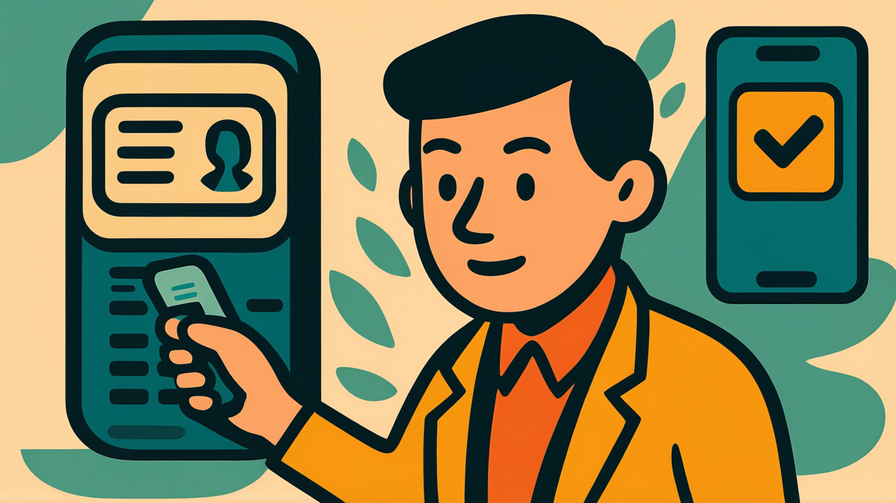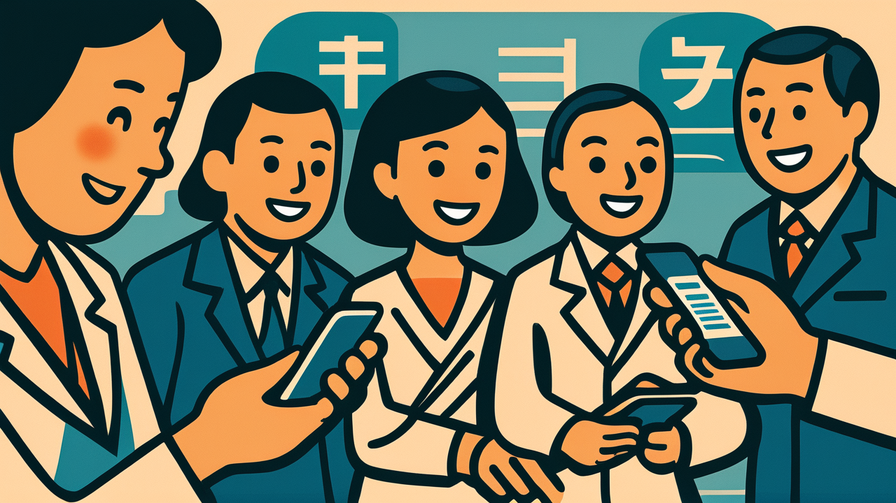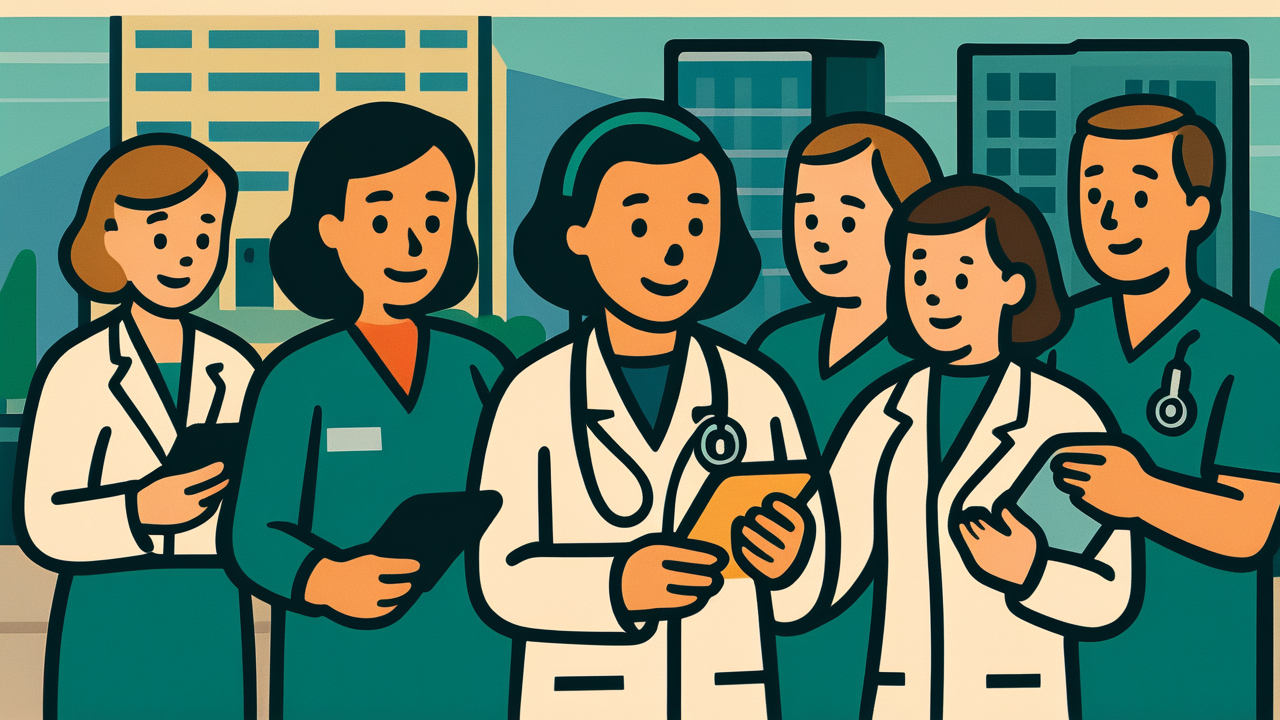[Disclaimer] This article is reconstructed based on information from external sources. Please verify the original source before referring to this content.
News Summary
The following content was published online. A translated summary is presented below. See the source for details.
Japan’s Digital Minister Taira and Health Minister Fukuoka visited Tokyo Medical Center to test a new system that lets people use their smartphones as health insurance cards. The trial program, running at 15 medical facilities in the Tokyo area, allows patients to check in at hospitals and pharmacies by simply tapping their phones on a card reader, similar to making contactless payments. To use this feature, citizens must first add their MyNumber Card (Japan’s national ID) to their smartphone and register for health insurance verification through the MyPortal app. The government plans to roll out this system nationwide starting September 2025. This development is part of Japan’s broader push to digitize government services and reduce reliance on physical cards and paperwork. The system uses facial recognition and NFC technology to verify identity and insurance eligibility instantly.
Source: Digital Agency of Japan
Our Commentary
Background and Context

Japan is famous for being high-tech, but it might surprise you to learn that it’s also famous for loving paperwork and physical stamps. While Japanese toilets have more buttons than a gaming controller, many government services still require visiting offices and filling out paper forms. That’s why this smartphone health card is a big deal.
The MyNumber system is Japan’s version of a Social Security number. Introduced in 2015, every resident gets a 12-digit number for taxes, social security, and disaster response. The physical MyNumber Card is like a super-ID that combines driver’s license, health insurance, and other functions.
Japan’s health insurance system covers everyone – citizens, residents, even international students. When you visit a doctor, you show your insurance card, pay 30% of the cost (10-20% for elderly), and insurance covers the rest. But carrying multiple cards (MyNumber, insurance, hospital cards) fills wallets quickly. Young Japanese especially want everything on their phones.
Expert Analysis
This smartphone system represents a careful balance between innovation and Japanese cultural preferences:
Why it matters:
1. Convenience: No more forgotten insurance cards meaning denied treatment
2. Efficiency: Instant verification reduces waiting times
3. Cost savings: Less paperwork means lower administrative costs
4. Emergency access: Medical history available if you’re unconscious
Japanese-style implementation:
– Gradual rollout (testing → select locations → nationwide)
– Both digital and physical options remain available
– Multiple verification methods (face, PIN, tap)
– Extreme focus on security and privacy
The interesting part is how Japan combines cutting-edge tech with careful consideration for all users. Unlike some countries that go fully digital immediately, Japan ensures elderly citizens who struggle with smartphones aren’t left behind.
Security experts praise the multi-factor approach: your phone (something you have), your face (something you are), and your PIN (something you know). This makes fraud much harder than with physical cards that can be stolen and used.
Additional Data and Fact Reinforcement
Japan’s digital transformation by numbers:
– 65% of Japanese have MyNumber Cards (2025)
– Target: 100% by 2026
– 90% own smartphones capable of NFC payments
– 70% already use phone payment systems like PayPay or Suica
– 30% of hospital visits are by people over 65
Benefits of digital health cards:
– Reduce medical errors from misread information
– Instant access to medication history prevents dangerous drug interactions
– Emergency responders can access critical health data
– Prevents insurance fraud (estimated ¥10 billion annually)
– Environmentally friendly (millions fewer plastic cards)
International comparison:
– Estonia: 99% of health data digitized since 2008
– Denmark: Fully digital health system since 2013
– South Korea: Testing blockchain health records
– USA: Still largely paper-based, varies by state
– India: Ayushman Bharat digital health IDs for 1.4 billion
Related News
Japan’s broader digital push includes:
– Digital driver’s licenses launching 2025
– Vaccine passports integrated into MyNumber
– Tax filing completely digital by 2026
– Digital signatures replacing traditional stamps (hanko)
– AI chatbots for government services in multiple languages
Challenges faced:
– Major MyNumber data leak concerns in 2023 (later proven false)
– Elderly citizens struggling with digital transition
– Rural areas lacking smartphone coverage
– Privacy advocates worried about government tracking
– Hospitals needing expensive equipment upgrades
Summary

Japan’s smartphone health insurance card trial represents more than technological progress – it’s a cultural shift in a country that perfected bureaucracy. For young Japanese tired of carrying multiple cards and visiting government offices, this change can’t come fast enough.
The careful, methodical rollout is typically Japanese. Rather than forcing everyone digital overnight, they’re testing, adjusting, and ensuring no one gets left behind. It’s innovation with a safety net, progress with patience.
For international students or workers in Japan, this system will be a blessing. No more language barriers at hospital reception, no more lost cards causing treatment delays, just tap and go. It’s especially relevant as Japan opens its doors to more foreign workers to address labor shortages.
The bigger picture shows Japan trying to maintain its technological edge while respecting traditional values. Success here could provide a model for other aging societies balancing innovation with inclusion. As one elderly tester said, “If I can use it, anyone can.”
Public Reaction
Young Japanese on social media celebrate finally joining the “smartphone for everything” world. Medical workers express relief at reduced paperwork but worry about system failures. Privacy advocates demand transparency about data handling. Elderly citizens’ groups request extensive training programs. Foreign residents hope for multilingual support.
Frequently Asked Questions
Q: What if my phone battery dies at the hospital?
A: Physical cards remain valid. Hospitals must accept both digital and physical insurance cards. You can also provide your MyNumber for manual verification.
Q: Is my medical data stored on my phone?
A: No, your phone only stores encrypted credentials. Medical data stays on secure government servers, accessed only when you tap your phone with your permission.
Q: Can tourists or short-term visitors use this?
A: No, you need a MyNumber (given to residents staying over 3 months). Tourists use travel insurance or pay full price for treatment.
Q: What phones are compatible?
A: iPhones (7 and newer) and Android phones with NFC. Basically, if your phone can do contactless payments, it should work.


